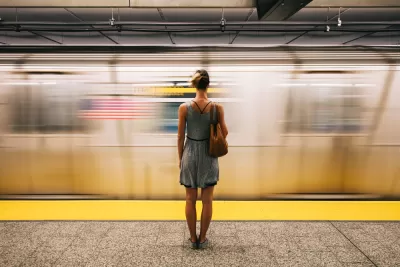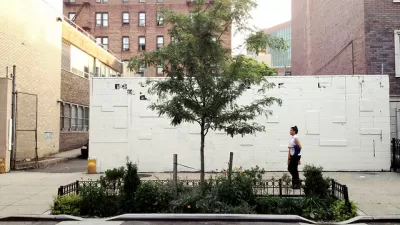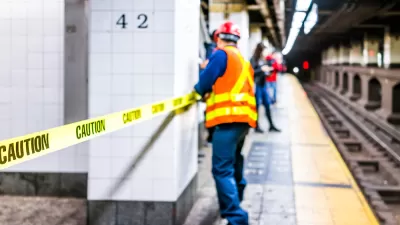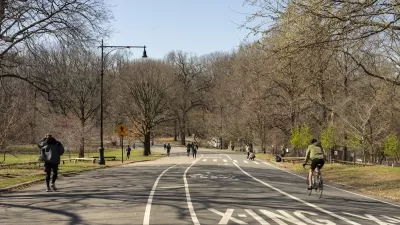One way to spend the afternoon after a long day at work: waiting for a delayed train on a 104-degree subway platform.

"A study released by the nonprofit Regional Plan Association (RPA) last week found that temperatures in New York City’s busiest subway stations are soaring and that the average temperatures hover around 94.5 degrees Fahrenheit," reports Jonathan Hilburg.
According to the report, the temperature of the platforms is exacerbated by the age of stations. According to Hilburg, "the city’s busiest stations are often its oldest and their design precludes centralized climate control."
Hilburg is following up on news coverage of the new study written by Aaron Gordon. Gordon's approach to the news raises the alarm about a lack of funding to implement the available solutions for the problem of rising heat in the subway system. And with longer and more intense heat waves expected as a result of climate change, the rising temperatures on subway platforms are expected to have worsening public health impacts.
FULL STORY: Prepare Yourselves, There Is No Immediate Fix for Hot Subway Stations

Planetizen Federal Action Tracker
A weekly monitor of how Trump’s orders and actions are impacting planners and planning in America.

Maui's Vacation Rental Debate Turns Ugly
Verbal attacks, misinformation campaigns and fistfights plague a high-stakes debate to convert thousands of vacation rentals into long-term housing.

San Francisco Suspends Traffic Calming Amidst Record Deaths
Citing “a challenging fiscal landscape,” the city will cease the program on the heels of 42 traffic deaths, including 24 pedestrians.

Defunct Pittsburgh Power Plant to Become Residential Tower
A decommissioned steam heat plant will be redeveloped into almost 100 affordable housing units.

Trump Prompts Restructuring of Transportation Research Board in “Unprecedented Overreach”
The TRB has eliminated more than half of its committees including those focused on climate, equity, and cities.

Amtrak Rolls Out New Orleans to Alabama “Mardi Gras” Train
The new service will operate morning and evening departures between Mobile and New Orleans.
Urban Design for Planners 1: Software Tools
This six-course series explores essential urban design concepts using open source software and equips planners with the tools they need to participate fully in the urban design process.
Planning for Universal Design
Learn the tools for implementing Universal Design in planning regulations.
Heyer Gruel & Associates PA
JM Goldson LLC
Custer County Colorado
City of Camden Redevelopment Agency
City of Astoria
Transportation Research & Education Center (TREC) at Portland State University
Jefferson Parish Government
Camden Redevelopment Agency
City of Claremont





























